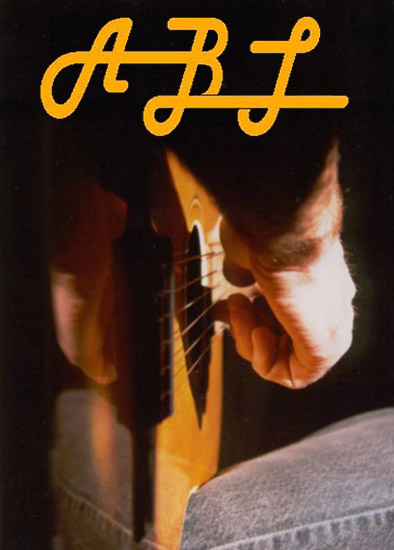In last month's column, "Rewriting and Editing, Part 1," I wrote about rewriting and editing a novel, as well as the difference between doing both to a novel vs. a song or poem.
Bookbaby (related to CD Baby) has a blog about copy editors for novels. "A good copy editor has the expertise to find and correct errors in spelling, grammar, continuity, flow, and punctuation." A copy editor will even determine if the length appropriate for the audience and media. In addition, a copy editor will look for the following:
- Is the main idea conveyed concisely?
- Are any words, sentences, or sections of the writing extraneous?
- Does your introduction inspire people to continue reading?
- Is the progression of the text well organized?
- Are the tone and style consistent throughout?
- Is the final thought strong?
If you change "introduction" to "first line" in #3, "final thought" to "ending" in #6, and novel-specific words (sections, text) to song-specific words (verses, lyrics), the list is a good checklist for writing a song.
Good writing is good writing regardless of the format.
As a songwriter, I learned to use sensory details: What do I see, hear, taste, smell and feel with my fingers or on my skin? What movements or actions happen? In additon, I learned to use active verbs instead of passive verbs: "I walked" instead of "I was walking." These are excellent techniques for novelists, too.
The checklist for novelists from TheWriteLife.com, which I mentioned in last month's column, that could be helpful for songwriters, includes the following:
- Cut long sentences in two.
- Axe the adverbs.
- Stick to one voice.
- Remove extra punctuation.
- Replace negative with positive.
- Replace stuffy words.
- Remove redundancies.
- Reduce prepositions.
- Cut "in order to."
- Don't use "start to."
- Nix "that."
- Replace "thing."
- Spot "very" and "really."
- Make your verbs stronger.
- Ditch the passive voice.
- Refer to people as "who."
- Avoid "currently."
- Cut "there is" or "there are."
- Match up your bullet points.
- Use contractions.
- Steer clear of the "ing" trap.
- Check your commas.
- Use "over," not "more than."
- Hyphenate modifiers.
- Identify your tells.
- Double check everything.
- Use contractions.
With the exception of the references to punctuation and bullet points, these are good rules for writing songs, too.
"How to self-edit your writing: 8 tips" by NowNovel.com
- Structure the task - Put the largest elements (such as plot structure) first. Once satisfied with these, focus on the details of language (grammar, style, punctuation).
- Use free tools - www.HemingwayApp.com is one. Use it to see sentence difficulty ratings and where you can replace awkward words with shorter synonyms.
- Check tense - Errors of tense are common amongst new writers. Ursula le Guin's book Steering the Craft has a concise yet thorough overview of tense types.
- Be ruthless - Don't be afraid to cut parts of your book that aren't working and start afresh - maybe the cut piece was vital preparation for something much better.
- Take a break - After finishing a draft put your work aside for a day, a week, a month—however long you need to be able to return and edit wtih fresh eyes.
- Read aloud - Read your writing aloud. hearing the rhythm of words will help you edit for flow. Your ears could help you find errors your eyes miss, too.
- Mix it up - Reading a text over and over might make your eyes used to an error. Try reading backwards from the last word to the first to pick up hard-to-spot errors.
- Change the picture - Try changing the font and font size in your word processor for editing . The altered appearance could help you see the text anew.
BookBaby suggests the following free online tools:
- I Write Like www.iwl.me
- Hemingway App www.hemingwayapp.com
- The Writers Diet www.writersdiet.com/?page_id=4
- The Up-Goer Five Text Editor www.splasho.com/upgoer5/
- Ninja Essays www.ninjaessays.com
If your book is stalled, BookBaby suggests "Four Wayst to Blow Up and Rebuild Your Novel":
- Combine characters - Maybe you’re asking your readers (and yourself) to invest in too many characters at once. Instead, combine multiple people into a single (more) complex and (more) compelling character.
- Cut to the good stuff ...[use] the MOST exiting ... section [is] the beginning or your book.
- Do it over again, and write towards an uncertain ending ... [to keep] a book [from losing] all its steam in the wind-down.
- Change tense or POV [point of view]
After several major revisions of my novel, I'm using the checklist for novelists from TheWriteLife.com. I'm keeping suggestions form the other lists in my mind, too. As I work my way through the checklist, I'm revising sentences and, sometimes, paragraphs. I'm also making a list of redundant words that need to be replaced with synonyms. My relatively short revision list is much longer. I hope it will iimprove my novel.
I have a feeling this process will improve my poetry and songs,too.
Thanks for visiting AcousticByLines.com. |

